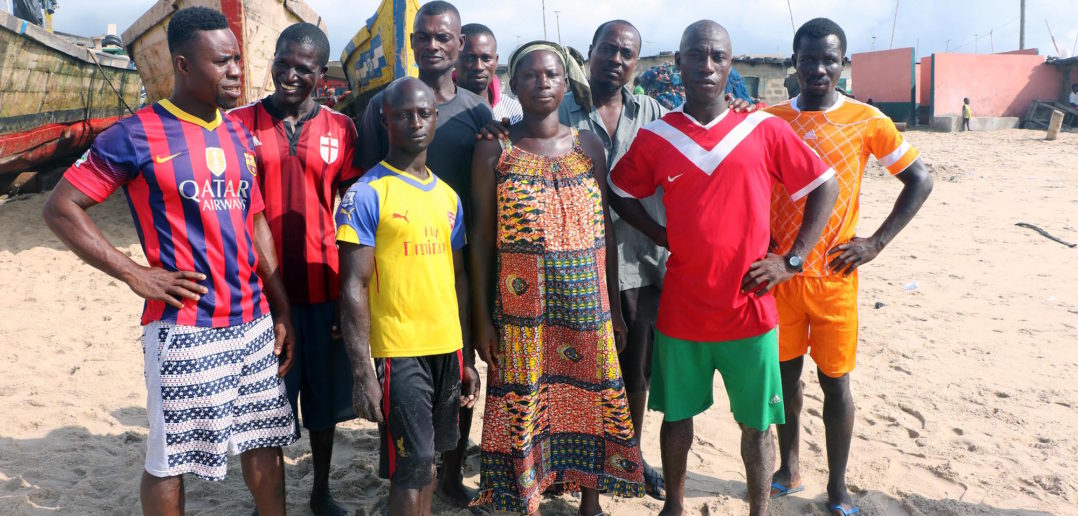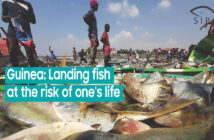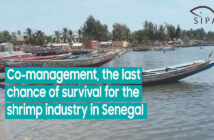Aba Mensa, 58 years, is one of the rare women in Anomabo in the centre of Ghana to own a fishing boat. Starting from scratch, today she employs over 100 people.
As the sun rises into the Sunday morning sky, Anomabo Beach is a hive of activity. Most of the fishers in this small village in the Central Region of Ghana are dragging their heavy canoes into the dark ocean at the start of their journeys. But some are returning to land after a long night of fishing. These groups of fishers help each other pull the long wooden canoes out of the water.
Aba Mensa strides across the beach, resplendent in a multi-coloured dress. From time to time, she exchanges a few words with fishermen. Almost everybody knows her affectionately as “Mama Aba.”
Mrs. Mensa is not an average 58-year-old woman. She is one of the very few women who own a fishing canoe. In fact, she owns four, each boat boasting a crew of 37 sailors. Mrs. Mensa says: “I was with my husband in Abidjan [Côte d’Ivoire] for a few years. There were problems between us and we separated, and I returned to Ghana. I didn’t know how I was going to start a new life without a husband. It was difficult.”
She was familiar with the fishing industry through her ex-husband’s work. She used her savings and, with her younger brothers’ help, she bought 12 wooden canoes. She sold eight and used the proceeds to equip the remaining four canoes with nets and outboard motors.
Fishing is a dangerous business and her fishermen sometimes suffer accidents. Kwame Bechi captains Mrs. Mensa’s “Boat No. 2.” Today, he and his crew have returned empty-handed from their expedition. Mr. Bechi says, “Our net was destroyed by a big boat. We have returned to land to try to repair it, so that we can go back and fish.”
Because it is difficult for the Ghanaian government to monitor and control all the fishing fleets operating in its waters, this kind of accident will likely become more common. Mrs. Mensa wants the government to intervene to protect small-scale fishermen and their equipment. But, for now, they are left to fend for themselves.
Mrs. Mensa says: “I make sure that there is at least one person in each boat who can read and write. If an accident happens, that person can at least record the registration number of the other boat. With this information, we can try to find the boat and negotiate for compensation.”
Mr. Bechi enjoys his job and does everything he can to make a profit for Mrs. Mensa. He says: “It is thanks to this lady that we have work, and that we can feed our families. So every time we cast off, we do everything we can to catch as many fish as possible to make her happy. She counts on us.”
During the fishing season, Mrs. Mensa employs eight women to smoke the fish her boats catch. Once smoked, the fish can be stored for up to six months, then sold when prices rise.
Mrs. Mensa explains: “I take the fish to Accra, Kumasi, and Mankessim. When I return, I buy maize, palm seed oil, and Gari [a granular cassava flour]to sell here.” Mrs. Mensa is doing well. She has used the money she earns from her fleet to build ten ovens, 70 nets, and a smoking shed.
Inoussa Maïga.





